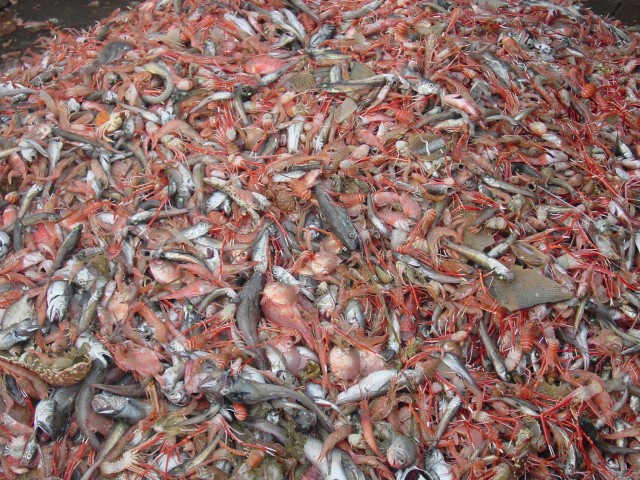Pramod, G., T.J. Pitcher, J. Pearce and D. Agnew, 2008.
UBC, Fisheries Research Centre Reports,16(4):244 p.
The report reminds readers that 'nominal catches' often cited in the FAO and other statistics, are only the reported part of what really happens in the world's fisheries. The true yield in weight of the world's fisheries is made up of much more than the landing reported. The authors argue that unless we get the real picture putting world fisheries back onto a healthy footing will be impossible. They have therefore taken a very hard second look at 'illegal, unreported and unregulated' IUU fishing a new category that has come to prominence in the last decade.
What are these categories which distort our perception of reality so drastically? Foremost among these are the following types:
- by-catch or discards of unwanted species, known to reach up to 80% of the weight of a catch e.g. for shrimp and made up of small fish and all kinds of bottom dwelling organisms which will be thrown back dying into the sea;
- catches that are taken illegally and misreported or unreported
- ghost fishing of abandoned nets that are particularly lethal to marine turtles and sea birds The photo to the right shows a typical 'by-catch' of a shrimp fishery in Mauritania.
The photo to the right shows a typical 'by-catch' of a shrimp fishery in Mauritania.
Clearly, particularly in an ecosystem-based approach to fisheries, all these losses need to be accounted for to paint a realistic picture about the impact of the world's fisheries. The 59 countries investigated here account for 96% of all fisheries. High-seas fisheries have been addressed with the help of several regional fisheries committees and management bodies. This report is not the last word on this long-neglected problem, but rather a valuable contribution to shedding more light into the often murky waters of global fisheries statistics.
The report places much emphasis on industrial fisheries, given that artisanal fisheries are - often wrongly - treated as marginal activities and few bother to collect meaningful statistics.








